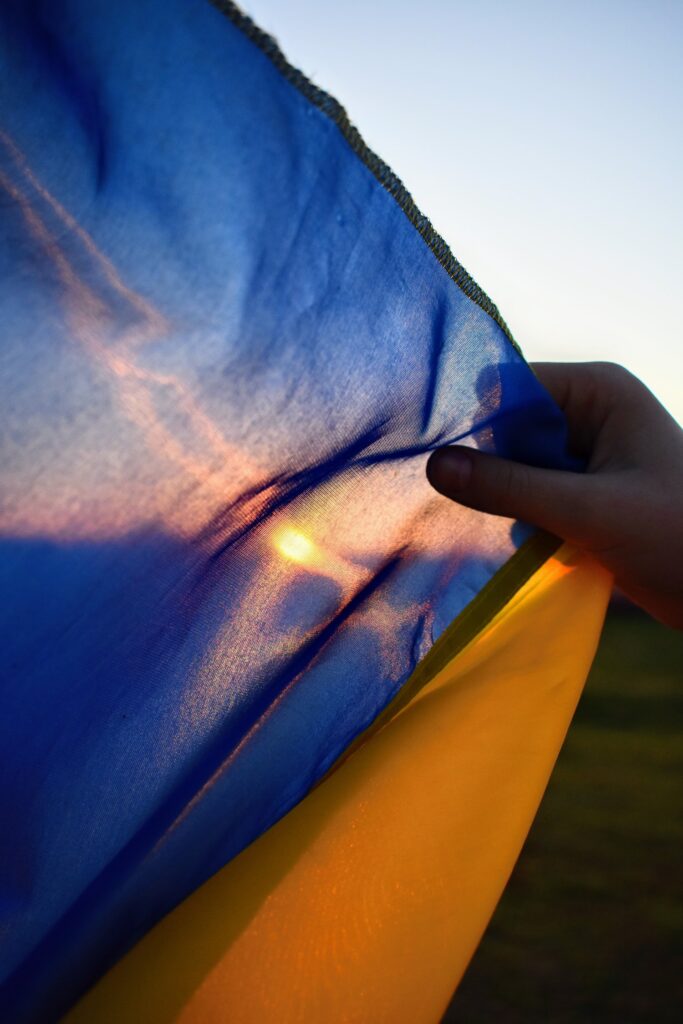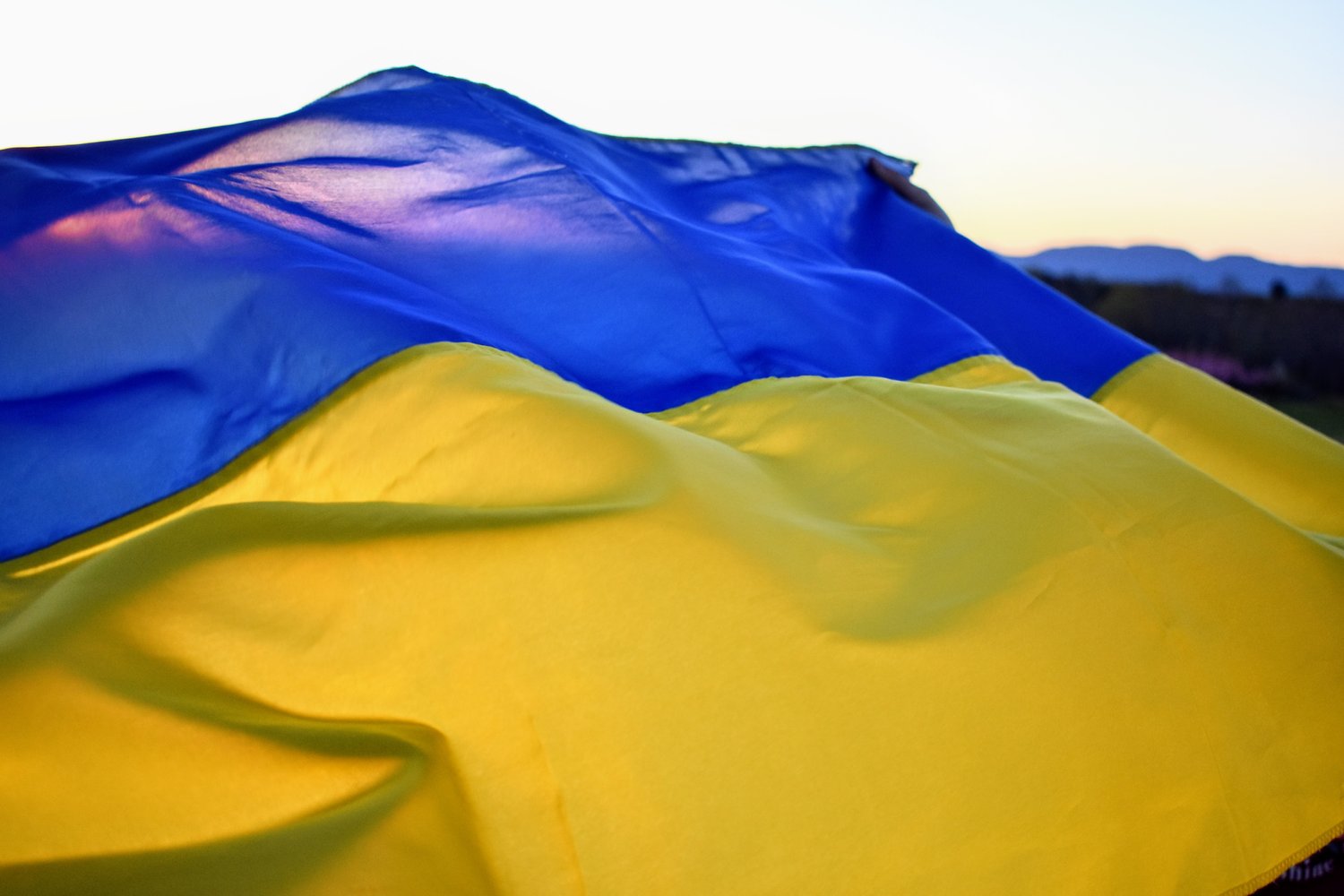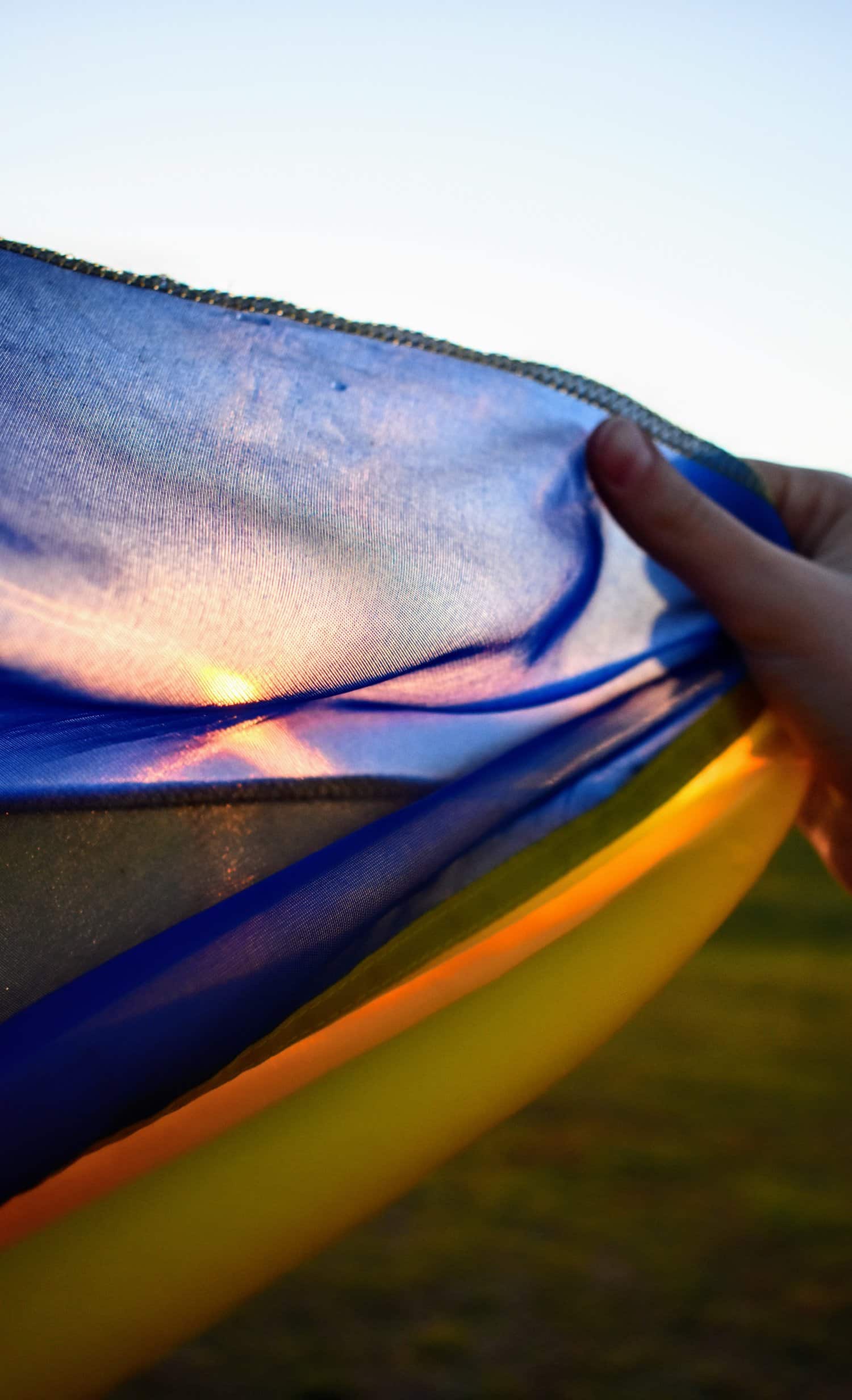
Ukraine: fighting against darkness
Seth Atkins, Visual Arts Editor
On Feb. 24, 2022, the world witnessed the country of Russia invade their neighboring country, Ukraine.
Some may be curious as to why Russia would invade Ukraine. To get the answer, it starts all the way back in the early 90’s. On Dec. 1, 1991, Ukraine finally gained their independence as the Soviet Union had fallen. Years later, in 2008, Ukraine started talks of signing an agreement with NATO to become a member. Vladimir Putin, Russian president, did not like this because he saw Ukraine falling more and more from his grip. Even though Ukraine is an independent nation, Russia still has influence within the country.
The first signs of Russian conflict were in 2014, when Russia seized the Ukrainian peninsula called Crimea. In 2019, Volodymyr Zelenskyy was elected the new president of Ukraine. His party is the first one in Ukraine to fight for all Russian influence to be taken out of the country. Putin saw his power in Ukraine dwindling, so he decided to do what the world was worried he would do: invade.
Russia started their invasion on the eastern side of Ukraine. Putin’s main initiative is to control Ukraine and keep a firm grip over the nation. But Ukrainians are not backing down like Putin and his officials thought.
In response, Ukraine has continued to fight. Zelenskyy declared martial law, and Ukrainians were ready to defend their country. Men were being enlisted in the Ukrainian military all over the country. Ukrainian civilians have also taken a stand in the fight, as some have used what they have to fight against Russian forces. One example is how one Ukrainian farmer used his tractor to haul a Russian tank. But citizens are not the only ones fighting; Zelenskyy is right beside his people, defending his country.
Russia has heavily bombed cities all across Ukraine, causing citizens to flee the country. Ukrainians must leave their homes, belongings and lives behind to protect themselves and their families.

Although this war is happening in Europe, it is affecting people on NGU’s campus. Lena Maslennikova, director of the eLearning Center, is from Ukraine. She shares how this war has affected her:
“I honestly still have a hard time processing it. I’m being in a fog with knots all over my stomach thinking that I would wake up any moment from that nightmare. It doesn’t feel real, it doesn’t feel like it’s really happening, and then I open the news or Facebook and see the pictures of my city, Kharkiv, in ruins, burned to the ground, houses and cars in flames, dead bodies in the streets and I can’t stop weeping for my nation, my country, and my family.” – Lena Maslennikova
Maslennikova then expressed how her family has been directly affected by the invasion by sharing, “My parents, sister, and a 13-year-old niece are remaining in their apartments in different parts of the same city. They are not safe, but they cannot leave.”
Maslennikova said sometimes her family loses internet and/or electricity and she cannot reach them for longer periods. She added, “Those are the worst periods because I dread the bad news. But I was able to talk both to my mom and my sister this morning, which was a huge relief.”
Maslennikova said they indicated that being in day 13 of constant bombing is taking its toll. Food and water are becoming scarce. They are forced to basements by heavier bombing very often, which they said is very tiring because the basements are cold, dirty, stuffy and without light. No accommodations, no water, no food. As a result, they go back to their apartments even if it’s not safe.
The Russians forces have a goal to get to Kyiv, the capital of Ukraine. This will allow them to have more control. But the Ukrainians have been able to defend the city from the opposing Russian military.
The Russian forces are still heavily bombing cities, including Kyiv. This includes hospitals, schools, apartments and many more places. War crimes have been brought forward against Russia and its forces, as they continue to target civilians.
More and more Russian citizens have taken a stand against the war. Protests started in Moscow and St. Petersburg to call for no more war in Ukraine. The anti-war movement in Russia has spread across the nation. Many Russian citizens have changed their perspective of Putin.

North Greenville University student Nikolai Garrison, junior, said most of his mom’s side of the family lives in Ukraine.
Garrison explains how this situation has affected him by stating, “Being in the United States, I have mostly just been worried about the safety of my family during this situation. I’ve spent hours watching the news, scrolling through twitter and keeping in touch with family.”
Garrison said the situation is affecting his mom a lot more. Her parents are elderly and live by themselves in the city of Zhitomir. He said his family has heard reports of attacks within the city, and they’re worried about what could happen as Russia moves in.
Garrison also offers advice on what NGU students can do by expressing:
“All I can suggest to do is exactly what I have been doing: pray for the people of Ukraine and Russia. Give to organizations that are funding relief efforts for Ukrainian refugees and anyone else impacted within the country.” -Nikolai Garrison
The fight in Ukraine continues to unfold as each day passes. For more information on how to help Ukraine, visit https://www.npr.org/2022/02/25/1082992947/ukraine-support-help.

